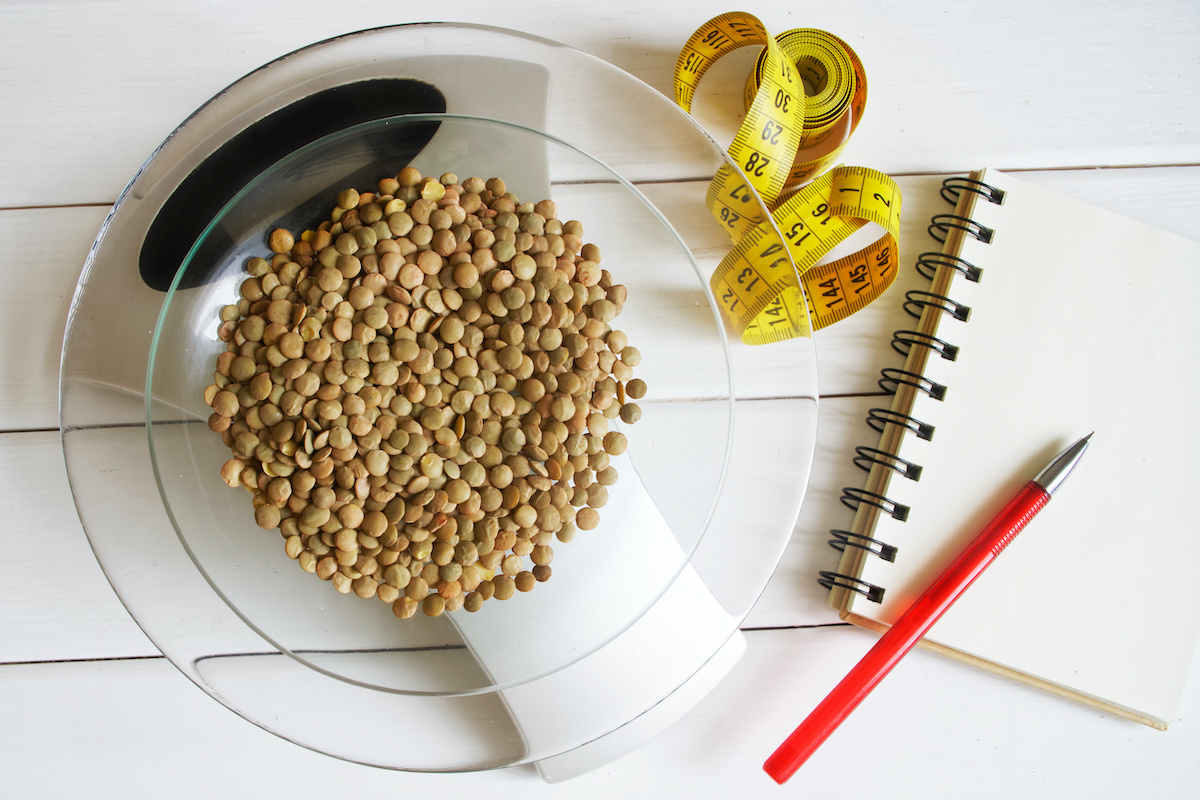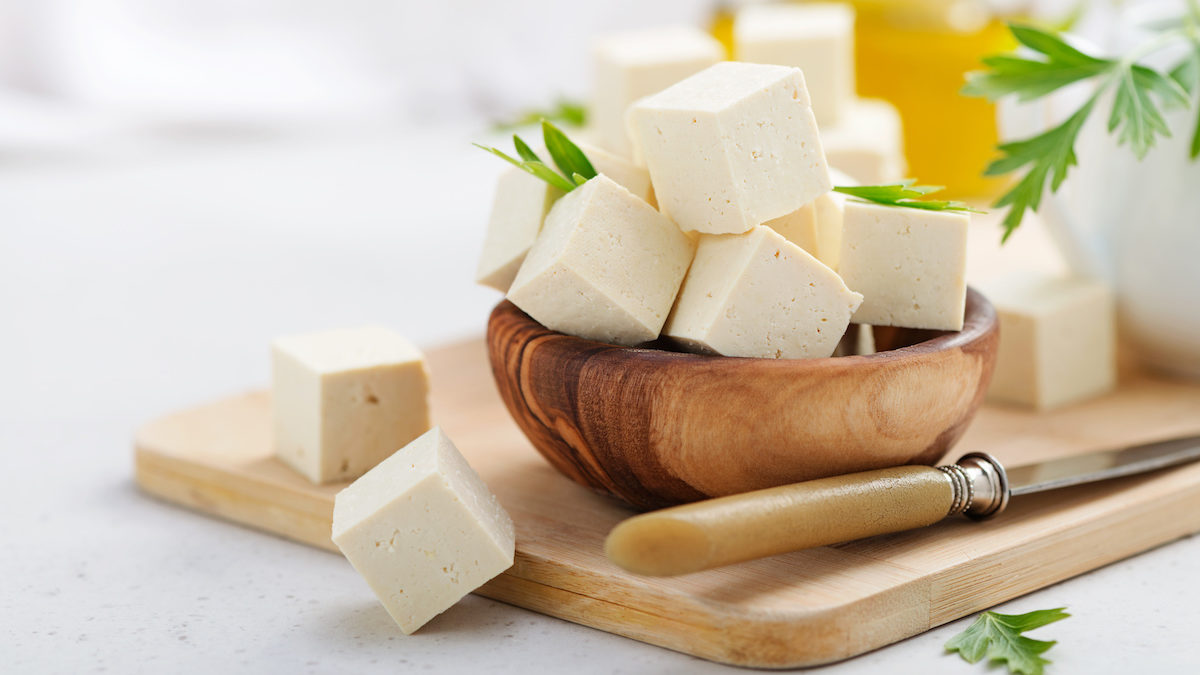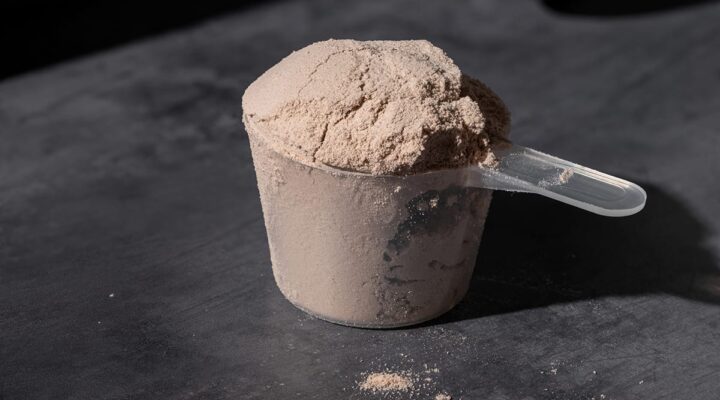Protein, Appetite And Energy Balance: Can The Macro Really Aid Weight Loss?

Most people associate protein with building muscle, but there’s more to the macronutrient. In a previous article, we discussed the role that protein plays in bone health, however, protein has also generated interest looking from an energy balance point of view, or in other words, the balance between calories in and calories out.
The benefits of protein in this regard are incredibly appealing as they may be helpful in us maintaining our weight, or even help us lose weight. This notion has begun to creep into mainstream belief, so much so that many new food products are sold on the basis of having added protein, or being high in protein. In this piece I shall try to explain the basis of these claims and the potential virtues of protein, summarising the current understanding and evidence.
Protein, Appetite And Intake
One of the proposed selling points of protein is that it makes you feel fuller, and reduces appetite and hunger. Indeed, several studies have demonstrated appetite to be more greatly reduced with protein-rich meals compared to meals higher in carbohydrates or fat.
Mechanistically there are a few explanations for this. Firstly, protein digestion takes longer because it is more complex, with a need to break down the protein in the acid environment of the stomach, as well as hack it to pieces using a cocktail of enzymes.
Secondly, the presence of protein in the gut also elicits different gut hormone responses, triggering greater release of the hormones CCK and GLP-1 (the latter known to suppress appetite), and greater suppression of the appetite-stimulating hormone ghrelin.
Despite this effect on appetite, it is less clear whether increasing protein actually makes you eat less. Part of the problem is that although you may eat slightly less in the next “all-you-can-eat” meal when you factor in the calories of the high protein test meal itself, this difference may disappear. Nevertheless, even accounting for this, some studies have shown an acute decrease in calories being eaten in subsequent meals, whereas others have shown no clear effect on intake.

Looking beyond just acute studies, observational population studies suggest there is an inverse relationship between protein intake and overall energy, or calorie, intake — in other words the higher the protein content of the diet, the lower the overall amount eaten.
This in part has supported the idea of a protein leverage hypothesis, which suggests that animals, including humans, have a priority for acquiring protein, which is a strong controller of appetite so that when protein intake decreases, appetite is driven up in order to acquire more protein.
An interesting idea, and one that has been proposed to be a factor in the rise in population calorie intakes over time as we are eating less protein. However, it is questionable whether our protein intakes have really fallen over time, at least not anywhere near to the levels proposed. So, the argument for setting higher recommended levels of protein intake based on this alone is probably not convincing enough. But, there may be other reasons why an increased requirement makes sense.
Protein And “Energy Out”
Besides influencing “energy in”, protein may also contribute to “energy out”, through its effect on energy expenditure. From an energy balance perspective, many readers may consider this in line with the first law of thermodynamics, which states that energy cannot be created nor destroyed, or that a “calorie is a calorie” irrespective of what contributes to those calories.
Yet, the second law of thermodynamics states that while the first law is correct, converting energy from one to another is not always 100 percent efficient and that some energy will be “lost” in the form of heat. This is what we call entropy, and the relevance of this can be illustrated when we look at how we assimilate calories from our diet.
The energy cost of digestion, absorption (and indeed transport and storage), manifests as a loss of energy, mainly as heat, which we collectively call diet-induced thermogenesis (DIT). The extent of DIT is different for fat, carbohydrate, protein, alcohol and fibre, with protein shown to exhibit the greatest proportion of loss through DIT. To this end, the calories provided by protein in a meal will actually yield fewer net calories than the same meal calories as carbohydrate.
That is not to say that the effect of DIT is not factored in, as DIT is actually a component of your energy expenditure — approximately five to 10 percent — and is taken into account when calculating this, or estimating population energy requirements.
Increasing the protein content of a meal or diet will give you greater DIT, although you will still have a net gain of extra calories — between 75 to 80 percent — from adding the protein itself. Interestingly, this is the same regardless of animal or plant origin, although plant protein may also contribute to additional fibre in the diet which is another significant source of DIT.
Displacing other components in the diet for protein may overall give you greater DIT for the same calories eaten, but the magnitude of these extra “lost” calories is small relative to overall energy.

Beyond any influence of DIT, increasing protein intake significantly to 1.2 grams per kg per day, or more, has been shown to increase overall resting energy expenditure (REE), a measure of your metabolic rate, mainly due to the high energy cost of the increased protein turnover and ureagenesis that will result. Indeed, this has been suggested as a useful strategy to try and maintain REE during weight loss, as well as help minimise the loss of body protein.
As a consequence, maintaining a relatively high protein intake during weight loss is a common feature of some diets, and at the very least it is worth maintaining a minimum of over 0.8 grams per kg per day when overall calories are significantly reduced.
Translation Of The Benefits
While there are several compelling arguments to suggest that increasing our protein intake could have energetic benefits, one needs to consider that protein itself still contributes net calories in the diet, and in excess can contribute to a surplus of calories overall.
It’s also worth bearing in mind that excess protein oxidation will also, directly and indirectly, contribute to increased adipose tissue storage in situations of excess.
For certain people where meeting overall energy (calorie) requirements is a challenge such as the elderly or undernourished, eating high doses of protein can also be counterproductive, as it can suppress overall appetite and make eating enough overall a challenge. In this scenario, as indeed more universally, we should be looking at protein requirements on a meal-by-meal basis, rather than trying to cram all the protein into us in one go.
The last caveat to make is that just looking at protein fails to consider other aspects of that food, meal or diet. It is key to look at the wider context rather than protein as a silver bullet — particularly when you look at modern foods that are badged as high protein as a sales pitch. They may naturally be high protein by their nature, or just the same as normal but with extra protein added. In both cases, often these also come with increased fat inherently or through the addition of other components like added nuts or seeds.


















